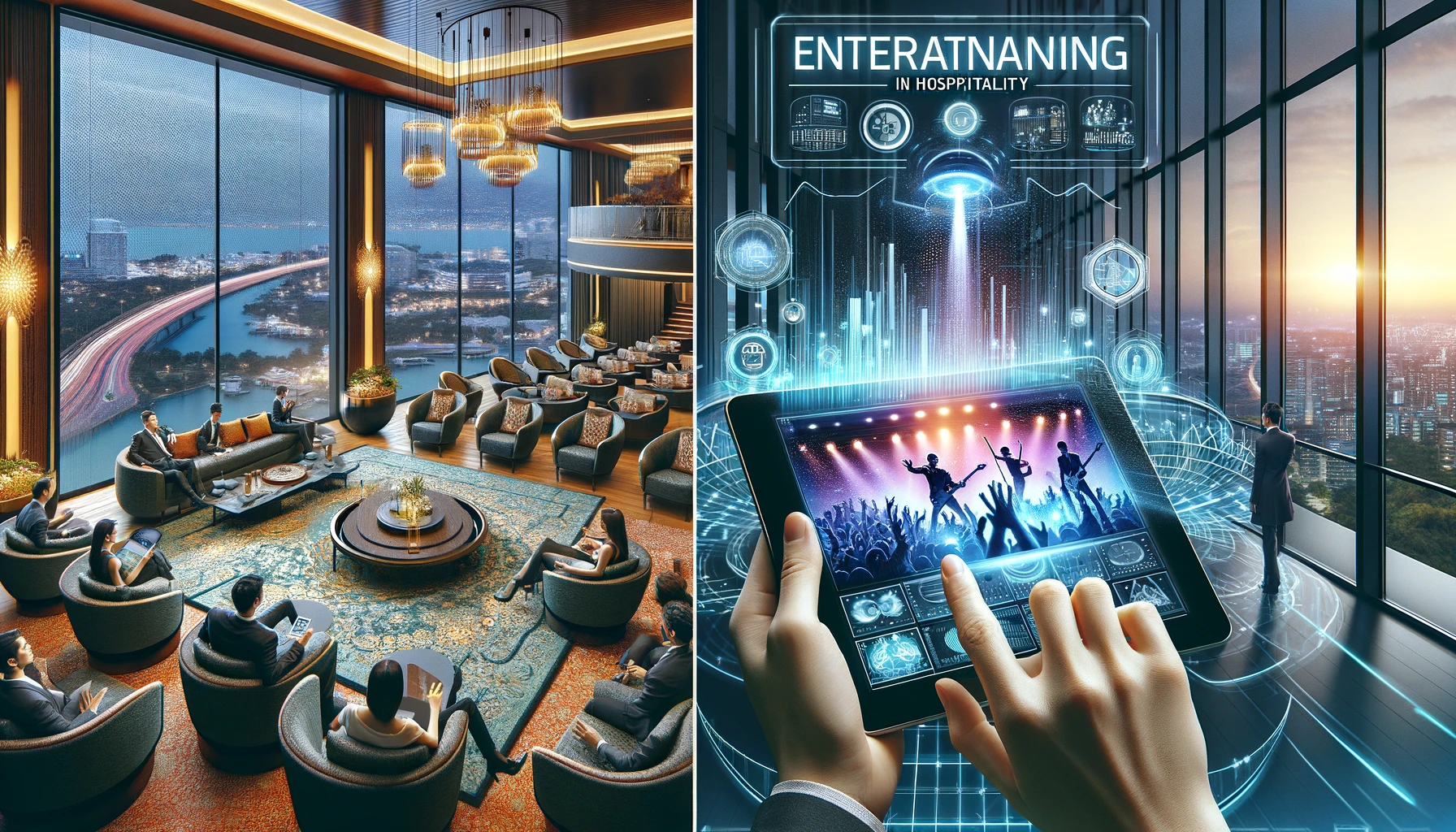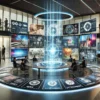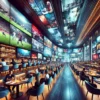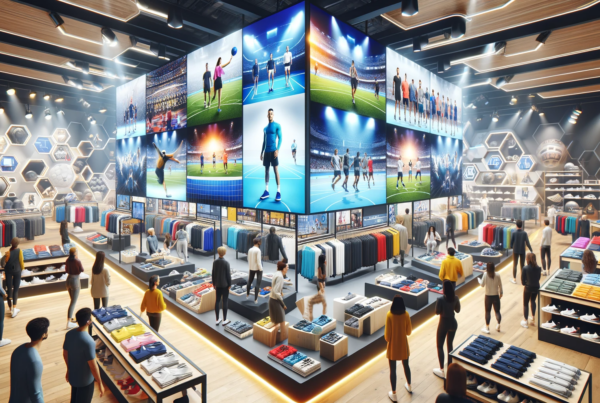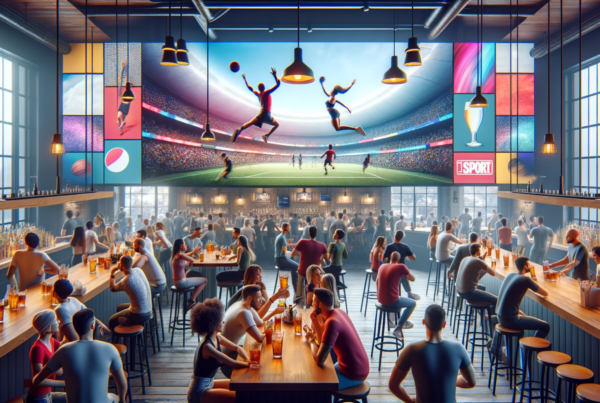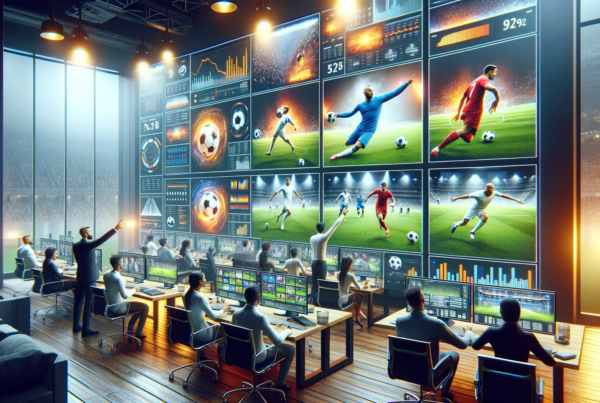In today’s competitive hospitality landscape, businesses are constantly seeking innovative strategies to attract and retain customers. One transformative approach is through the integration of entertainment – a dynamic element that can significantly enhance the guest experience and serve as a catalyst for growth. Unleashing the potential of entertainment in the hospitality sector is not just about providing a diversion; it’s about creating memorable experiences that resonate with guests long after their stay. In this comprehensive guide, we delve into the myriad ways entertainment can be harnessed to elevate hospitality businesses to new heights, ultimately driving growth and customer loyalty for brands like Sports Direct.
Understanding the symbiotic relationship between hospitality and entertainment is crucial. Entertainment acts as a value-added service that can differentiate a hospitality business from its competitors. It’s an investment that pays dividends in the form of increased occupancy rates, higher per-customer revenue, and improved customer satisfaction scores. But how can you effectively leverage this tool? What types of entertainment resonate most with today’s discerning travelers? And how can you measure the success of your entertainment offerings? These are the questions we will explore, providing actionable insights and real-world examples that underscore the transformative power of entertainment in hospitality.
Creating Immersive Entertainment Experiences
The foundation of leveraging entertainment for hospitality growth lies in creating immersive experiences that captivate guests. Whether it’s through live performances, interactive installations, or cutting-edge virtual reality, immersive entertainment can transport guests to another world, offering a unique escape from the ordinary.
Take, for example, a hotel that partners with local artists to provide live music events. These events not only showcase the local culture but also create a vibrant atmosphere that encourages guests to spend more time – and money – on the property. Similarly, interactive installations such as art exhibits or digital gaming lounges can offer guests a hands-on experience that’s both entertaining and memorable.
Virtual reality (VR) takes immersion to the next level. By offering VR experiences, hotels and resorts can provide guests with adventures that would be impossible or impractical in real life, such as deep-sea diving or space exploration. These novel experiences can be a strong draw for guests seeking something beyond the traditional hotel stay, setting your establishment apart in a crowded market.
Innovative Entertainment Solutions
When it comes to hospitality, innovation is key. The industry is ripe with opportunities for creative entertainment solutions that not only delight guests but also reflect the brand’s identity. Sports Direct, for instance, could explore partnerships with sports events or offer exclusive viewing parties, tapping into the excitement of live sports to create a communal, exhilarating guest experience.
Another innovative solution is the incorporation of theme nights or pop-up events. These limited-time offerings can generate buzz and encourage repeat visits as guests look forward to the next unique event. From culinary festivals featuring guest chefs to interactive murder mystery dinners, the possibilities for innovative entertainment are vast.
Personalizing Guest Entertainment
Personalization is a cornerstone of modern hospitality. By tailoring entertainment options to the preferences and interests of individual guests, establishments can create a sense of bespoke service that significantly enhances the guest experience. This could range from personalized welcome playlists in guest rooms to on-demand movie services with curated recommendations.
Technology plays a pivotal role in enabling personalization at scale. With the help of data analytics and AI, hospitality businesses can gain insights into guest preferences and tailor their entertainment offerings accordingly. For instance, a smart hotel room system could suggest local events or entertainment options based on the guest’s previous activities or expressed interests.
Maximizing Revenue Through Strategic Entertainment Offerings
Entertainment does more than just please guests; it also presents an opportunity for revenue generation. By strategically integrating entertainment into the business model, hospitality providers can create new revenue streams that complement their core offerings.
One approach is to design entertainment packages that guests can add to their bookings. These packages might include tickets to a show, exclusive access to a private concert, or a guided tour of local attractions. Not only do these packages provide convenience for guests, but they also increase the average transaction value for the business.
Furthermore, by hosting events or entertainment activities on-site, hospitality businesses can attract non-staying guests who contribute to revenue through food and beverage sales, merchandise, and other ancillary services. This broadens the establishment’s reach and reinforces its position as a local entertainment hub.
Leveraging Partnerships and Sponsorships
Forming strategic partnerships and sponsorships with entertainment providers can be a highly effective way to offer premium entertainment without bearing the full cost. Collaborations with event organizers, entertainment companies, or local attractions can result in mutually beneficial arrangements that enhance the guest experience while promoting both the hospitality provider and the entertainment partner.
For example, a hotel might partner with a music festival to offer exclusive package deals, including accommodation and festival tickets. This not only drives bookings but also positions the hotel as a key player in the local entertainment scene.
Measuring the Impact of Entertainment on Hospitality Growth
To ensure that entertainment investments are driving the desired outcomes, it’s essential to measure their impact on hospitality growth. Key performance indicators (KPIs) such as guest satisfaction scores, repeat visitation rates, and revenue from entertainment-related services can provide valuable insights into the effectiveness of entertainment offerings.
Surveys and feedback forms are also instrumental in gauging guest reactions to entertainment options. This direct feedback can inform future decisions and help refine the entertainment strategy to better meet guest expectations.
Conclusion: The Future of Entertainment in Hospitality
The integration of entertainment into the hospitality industry is not a fleeting trend; it’s a strategic move that can lead to long-term growth and success. As consumer preferences evolve and technology advances, the possibilities for entertainment in hospitality will only expand. By staying ahead of the curve and continually innovating, hospitality businesses can not only meet but exceed guest expectations, securing their loyalty and patronage for years to come.
In conclusion, unleashing the potential of entertainment in the hospitality sector is a multifaceted endeavor that requires creativity, strategic planning, and a deep understanding of guest desires. For brands like Sports Direct, it presents an exciting opportunity to differentiate themselves, create lasting memories for guests, and ultimately drive business growth. With the right approach, the fusion of entertainment and hospitality can unlock untapped potential and set the stage for a vibrant, prosperous future.

